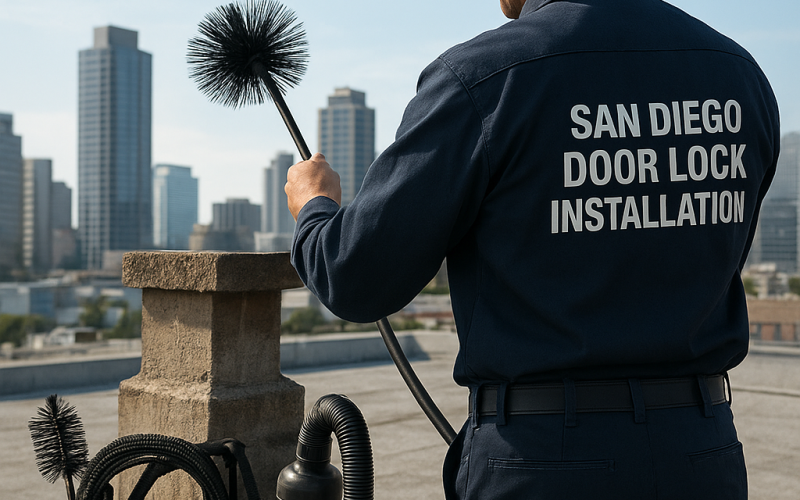Introduction
In the process of installing a door lock, numerous aspects are involved one of the most underestimated is how weather conditions impact installation and the functioning of the lock. Whether sealing your home against chilling drafts or guaranteeing smooth operation in damp environments, understanding how weather affects door lock installation is essential for long-term security and ease of use.
Why Is Weather Important for Lock Installation?
Weather conditions influence the materials used, the method of installation, and the longevity of the lock itself. Fluctuating temperatures and varying moisture levels can cause door frames to swell or shrink, affect metal components, and lead to corrosion or mechanical issues. Ignoring these conditions may result in a malfunctioning lock and weakened home security.
Correct installation that compensates for regional climate fluctuations ensures the door lock functions perfectly throughout the year, boosting total security and comfort.
What Are the Common Issues Caused by Weather Conditions?
Temperature changes and humidity levels tend to create issues such as swollen wood, corroded metal components, and misaligned mechanisms.
- In cold temperatures, doors may contract, causing deadbolts to become stiff or stuck.
- In humid conditions, locks may rust or freeze.
Corrosion resistance, durability of materials, and thermal expansion are all important considerations. Neglecting these may lead to premature wear, frequent repairs, or replacements.
What Are the Primary Advantages of Weather-Sensitive Installation?
Making sure your door lock installation is weather-sensitive offers several benefits. A well-installed lock can withstand harsh weather conditions while maintaining smooth functionality, reducing upkeep needs, and extending its lifespan.
Installation by a professional who considers climatic factors can enhance security, prevent lockouts, and ensure smooth operation year-round.
“Selecting materials suited for your climate and a specific installation technique are critical in avoiding weather-related issues that cut on safety.”
What Is the Role of Locksmith Services in Weather-Resistant Installations?
Locksmith services are essential in addressing the challenges posed by weather. Skilled locksmiths know how to select weather-friendly locks and install them to withstand humidity, rain, frost, or heat. They also provide routine maintenance, such as lubrication and rust prevention.
With professional locksmithing services, homeowners can ensure their locks are tuned to local climatic requirements, enhancing both security and ease of use.
What Is the Weather-Resistant Lock Installation Cost Breakdown?
| Service Type | Estimated Cost Range (USD) | Notes |
|---|---|---|
| Weather-Resistant Locks | $100 – $300 | Stainless steel or weather-resistant locks |
| Professional Locksmith Labor | $75 – $150 per hour | Maintenance and installation included |
| Emergency Repair Services | $100 – $250 | 24/7 availability, prices vary with urgency |
Disclaimer: Prices differ by region, lock type, and service provider.
What Are the Major Features of Locks Appropriate for Various Climates?
Locks designed for extreme weather typically include:
- Stainless steel bodies resistant to rust
- Weather-resistant coatings
- Waterproof gaskets to block moisture
- Self-lubricating systems to prevent freezing
- Adjustable strike plates for swollen doors
- Electronic locks with protective enclosures
The key features to look for are strength, corrosion resistance, a weather-resistant finish, and smooth operation.
How Do Lock Installation Practices Make All-Weather Safety Possible?
Professional installation provides an additional layer of safety beyond the lock hardware. A properly fitted lock ensures components are aligned to resist forced entry, even during storms.
Weather-resistant locks also prevent mechanical failures that could trap occupants inside or block emergency access. Testing locks under different temperature and moisture conditions during installation is crucial for long-term reliability.
Why Are Emergency Locksmith Services Important in Extreme Weather?
Sudden weather changes can directly affect lock performance. In storms or severe temperature drops, locks may freeze, break, or jam. Emergency locksmith services provide immediate solutions, ensuring safe property access without damage.
They can also repair, rekey, or replace weather-damaged locks, preventing future issues. Keeping a reliable emergency locksmith contact is a smart precaution.
Conclusion: Prepared to Guard Your Home Any Weather?
Understanding how weather impacts lock installation helps you choose the right lock and service without compromising security. Don’t wait for weather-related lock issues—partner with a professional locksmith for a weatherproof installation. Safeguard your property and enjoy peace of mind in every season.
Frequently Asked Questions Regarding Weather and Lock Installation
Q1. Can cold weather freeze my lock?
Yes, when moisture inside the lock freezes, it can make turning the key difficult.
Q2. How frequently should a lock be maintained in rainy environments?
Quarterly cleaning and oiling are advisable to prevent rust.
Q3. Are there particular locks suitable for rainy regions?
Yes, stainless steel or aluminum locks with protective, weather-resistant coatings are recommended.
Q4. Can extreme heat harm locks?
Excessive heat can warp plastic components and break down lubricants.
Q5. Does expert installation provide better protection against weather?
Yes, locksmiths install locks with climate considerations in mind, increasing durability.
Q6. How does humidity impact lock operation?
Humidity can corrode metal parts and cause wooden frames to expand.
Q7. Should I replace locks following a harsh storm?
If locks develop rust or mechanical issues, replacement is the safer option.
Q8. What’s the lifespan of a weather-resistant lock?
With proper care, weather-resistant locks typically last 10+ years.
Read More: Locksmith












